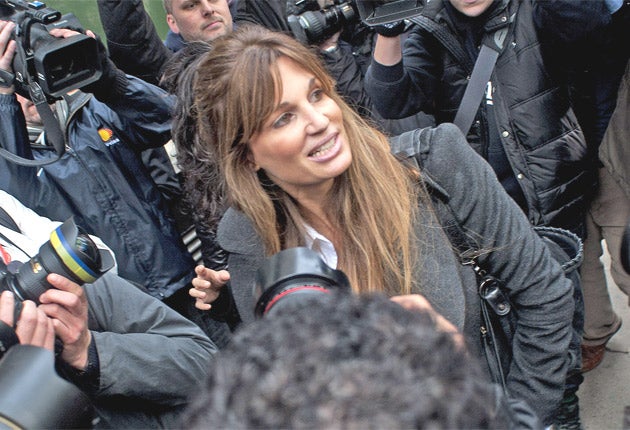WikiLeaks head bailed, but spends another night in solitary confinement

WikiLeaks founder Julian Assange was granted bail on a £200,000 cash surety yesterday at the end of a hearing in which high-profile figures queued to offer financial guarantees for his freedom and protesters outside the central London court building howled their anger against his "grotesque" detention.
But last night the 39-year-old Australian remained in solitary confinement in Wandsworth Prison after prosecutors appearing on behalf of the authorities in Sweden, where Mr Assange is wanted on sex allegations, decided to appeal against the ruling. A hearing in the High Court in London is likely to take place in the next 48 hours.
Campaigners accused the Swedish authorities of bringing a politically motivated case, following the release of more than 250,000 American diplomatic cables on WikiLeaks and called for the claims that he sexually assaulted two women to be dropped.
Mr Assange, who according to his British lawyers is already under investigation by a secretly empanelled grand jury in America charged with establishing whether he can be prosecuted over the leaked telegrams, was remanded in custody a week ago after a magistrate accepted arguments that he might flee the country if released. During hectic proceedings, which saw Westminster magistrates' court surrounded by several hundred placard-waving protesters, District Judge Howard Riddle conceded that concerns about Mr Assange's residency had been resolved, before imposing stringent conditions on his release, including a demand that he surrender his passport and wear an electronic tag while living on the 600-acre Suffolk estate of one of his key supporters, Vaughan Smith.
In addition, Mr Assange, who denies the Swedish allegations, and his supporters were ordered to provide £200,000 in cash along with £40,000 to be pledged as security.
Mark Stephens, the solicitor representing Mr Assange, said his client was being held in "Orwellian" conditions in the south London prison, with only 30 minutes a day of free movement, and rigorous censorship of his mail and communications. Infrared photography was also being used to monitor his cell 24 hours a day.
He said: "Julian has absolutely no access to any electronic equipment, no access to the outside world, no access to outside media. Until the court is in possession of £200,000 in cash, an innocent man stays in jail. It is pretty uncomfortable for him at the moment."
Mr Assange's status as a global cause célèbre was underlined by the succession of prominent figures who made their way to court to pledge their support, both moral and financial, for him. Among those attending with offers to contribute to the bail payment were socialite Jemima Khan, author Hanif Kureishi and journalist John Pilger. Pledges of cash were also received from sources as diverse as American film director Michael Moore and the Marchioness of Worcester.
Mr Assange had kept out of the public eye and frequently changed his location after it became clear earlier this year that WikiLeaks was in possession of a vast quantity of US government material. The court heard that he was accused by Swedish prosecutors of having unprotected sex in August this year with a woman, Miss A, when she had insisted he use a condom. In a separate incident, he is alleged to have had unprotected sex with another woman, Miss W, while she was asleep.
Geoffrey Robertson QC, the human rights lawyer representing Mr Assange, told the court that the case had been thrown out by a senior prosecutor in Stockholm, who found the allegations did not amount to rape, only for the investigation to be reinstated in a different city following representations by a Swedish MP.
Mr Robertson said it was unclear whether the allegations against Mr Assange amounted to rape or an extraditable offence under British law. Gemma Lindfield, appearing for the Swedish authorities, said Mr Assange should be denied bail because he had sufficient resources to abscond.
Bookmark popover
Removed from bookmarks